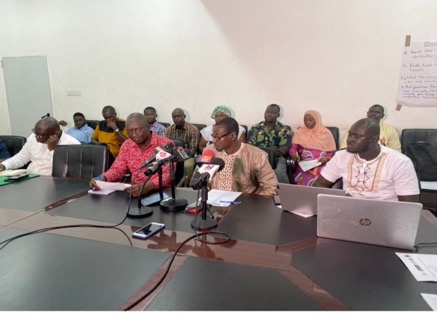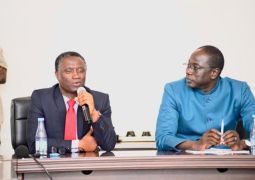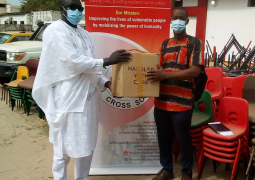
The study was jointly conducted by the Directorate of Health Research under the Ministry Health in collaboration with UK Public Health, Medical Research Council-Gambia (MRCG) and London School of Tropical Medicine.
The study, which covers 2016-2022 also seeks to establish an estimate of excess mortality from all-causes during the COVID-19 pandemic as well as changes in mortality from January 2016 – June 2021. This would help to generate baseline information in supporting the ongoing mortality surveillance in The Gambia. It also seeks to estimate all-cause mortality for both health facility and community deaths in The Gambia.
Welcoming the gathering, Sainey Sanneh, director of Health Research at the Directorate of Health Research at the Ministry of Health, described the day as another historic one in the history of research in the country in that they were able to conduct a very important study that was meant to actually inform as well as build baseline data for their ongoing surveillance.
“You will all bear witness that tracking our health event is important because it provides current and ongoing information to inform policies and also decision making processes to be able to be on top of issues rather than reacting to circumstances.”
The study, he said, came as a result of the Covid-19 pandemic and in their broader pursuit to determine whether Covid-19 was responsible for more deaths in the country than other health conditions.
“The country was registering deaths but the data we had at hand then was so scanty to actually determine whether we are going to track the mortalities related to Covid-19 or if we can make a comparison as to see whether before Covid-19, in fact there were more deaths. We now need to go into taking this very important data sources to inform us as to what the circumstances on the ground were.”
He noted that the data sources were collected from a wide range of areas, namely: both public and private and communities.
Karamba Keita, deputy permanent secretary technical at the Ministry of Health, described the training as timely and crucial in informing policy decision on mortality in the country.
He on behalf of the Ministry thanked all those who worked hard to unravel these important findings.
In his presentation, Joseph Jatta, senior health researcher at the Directorate of Health Research at the Ministry, acknowledged that the scale of impact of COVID-19 in most of the low income countries including The Gambia remains unclear.
He observed that most countries in Sub-Saharan Africa including The Gambia lack Civil Registration and Vital Statistics (CRVS) system to monitor the effects of COVID-19 on mortality.
This mortality data, he added, was collected from all public and private health facilities across The Gambia; 39 private health facilities, 56 public health facilities and 106 community health nurses.
The study, he said, provides a first estimate in the trends in mortality in The Gambia during the COVID-19 pandemic.





